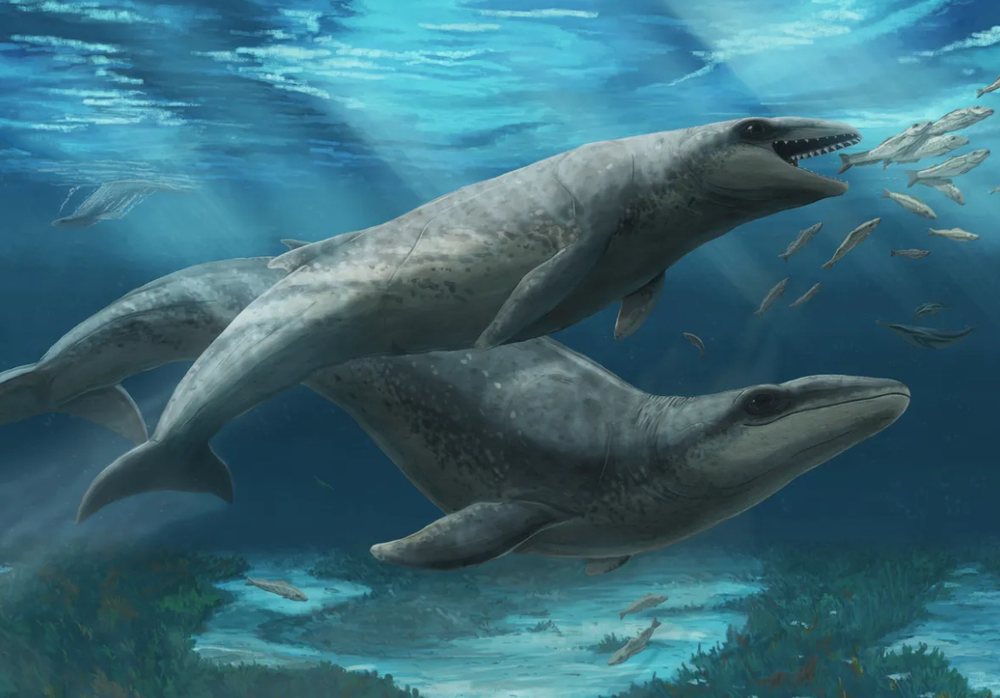
A major paleontological discovery has shed light on the evolution of modern whales. A 25-million-year-old fossil of a previously unknown species, called Janjucetus dullardi, has been found on the coast of Jan Juc, in the state of Victoria, Australia.
The well-preserved fossil, which includes parts of the skull and teeth, belongs to a relatively small creature, about 2 to 3 meters long. Despite its limited size, this ancient whale is described by researchers as a powerful predator, with large eyes and sharp teeth, capable of catching prey in the shallow waters of the Oligocene epoch.
The discovery is particularly important for science, as this species represents one of the earliest forms of toothed whales, providing new clues about how modern filter-feeding whales, such as blue whales and fin whales, evolved. Only four similar species are known to date, three of which were discovered in Australia.
The fossil was found in 2019 by amateur researcher Ross Dullard, who handed it over to Museums Victoria, where it was then analyzed using advanced scans. Researchers say Janjucetus dullardi is an important link that helps understand the transition from toothed predatory whales to the toothless giants we know today. The discovery has been hailed by paleontologists as one of the most significant finds in recent decades for the history of marine mammal evolution.






















